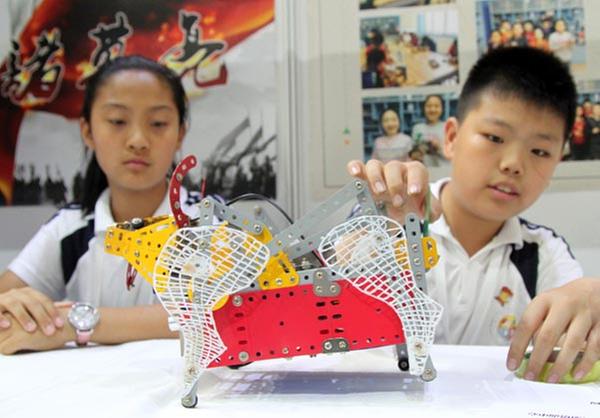Computer programming catching on in Chinese schools

 |
| Students demonstrate their inventions at the Play+Make event in Beijing. [Photo/Xinhua] |
"We are designing an anti-drunken driving car system, with a master switch and an alcohol sensor," said Li Jialin, an 11-year-old from Beijing Caoqiao Primary School.
Li and his team were demonstrating their invention at the Play+Make event for Beijing's primary and secondary school students in late May.
They installed an alcohol sensor in the steering wheel and set up a program. When the driver presses the vehicle's start switch, the alcohol sensor begins to monitor the concentration of alcohol in the air. If it exceeds a certain standard, the car issues a warning and will not start.
More than 1,500 school students from Beijing showcased their designs at the event. They included a vehicle with an environmental-detection system and an intelligent baby stroller.
While showing great imagination, they all had one other thing in common-they needed programming.
Li learned to use Arduino, an open-source electronics platform, to create interactive objects at school. Young inventors at the event programmed their gadgets with all kinds of programming platforms, including Scratch, which offers a visual programming environment.
Programming is catching on in schools as one of the core skills of information technology.
Wang Jun, an official from the Beijing Municipal Education Commission, says more than 200 primary and secondary schools in Beijing teach programming. More schools are exposing students to programming through extracurricular activities and science societies.
"Programming is a tool, not an end. We hope the students can apply the skills of programming to innovation and develop a problem-solving mindset," Wang says.
In the United Kingdom, computer programming is a compulsory course for children older than 5.
Although China has yet to add programming to the national school curriculum, some private-education providers are eyeing the market.




































